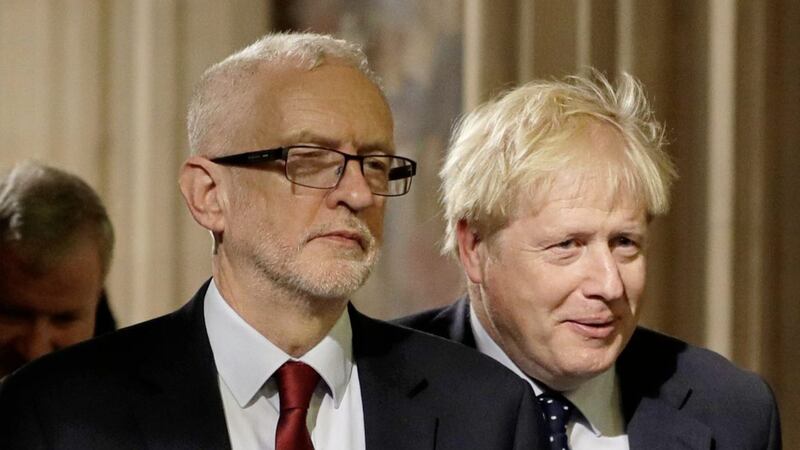My goodness, it's the third day of the election and everyone is suddenly an expert. Here's my advice, based on 40 years of observing and writing about elections (as well as having organised campaigns and knocked on thousands of doors).
Don't get worked up too early. Everything will look very different in two weeks time and different again two weeks after that. Polls will change. Mistakes will be made. The public mood will shift. There will be shocks and surprises. In an era of sailing through uncharted waters there are no experts any more.
Nobody - and I really do mean nobody - knows who will win. That's because there is no certainty about what the public wants. Most polls indicate the division between Remain and Leave, while wide in political/ideological differences, is still narrow electorally. The Conservatives are campaigning on Johnson's deal. Labour wants a deal of its own - its version of what I call the constitutional granny flat option - which it then wants to put to a confirmatory vote, including a Remain option.
The Lib-Dems want to kill Brexit. The SNP aren't really campaigning on Brexit and just want enough votes and MPs to make the push for a Scottish independence referendum unstoppable. The Brexit Party doesn't trust Johnson to follow through and wants enough MPs to replace the ERG Spartans and make sure they can control him (if he wins) or seriously disrupt Corbyn (if he wins).
Now, unless one of those three main choices - Conservative, Labour or Lib-Dem - wins a stonking majority, or can create a coalition with an equally stonking majority, then we are back to square one and Heaven knows how many more years of round-and-round-the-garden debates and serial extensions from the EU (granted because they still get the UK's membership payments).
At the moment the polling/electoral odds favour Johnson. But those same odds favoured Theresa May in the 2017 election and she came a cropper. Johnson starts with a -40 or so seat deficit, so he needs to win those seats, plus 10 more to replace his former allies in the DUP, just to reach the numbers May had 30 months ago. If the SNP sweep all before them in Scotland, there's every likelihood he could lose all 13 Tory MPs as well.
He is looking to Labour seats (those that voted Leave by a significant margin and backed Farage's Brexit Party a few months ago) to help him build a majority, but that will require a manifesto that spreads far beyond Brexit concerns. Yet a manifesto that pleases old-Labour voters will not please the voters in rock-solid Conservative seats; so he will have to construct a very delicate balancing act.
What he is banking on most, of course, is Jeremy Corbyn collapsing under the intense pressure and scrutiny of the election campaign. But he didn't collapse in 2017. He didn't collapse, as Johnson hoped he would, in the run-up to the election; waiting, instead, until no-deal had been taken off the table. And while it's true that millions of people can't stand Corbyn, millions more can't stand Johnson.
It is Johnson who will come under the greatest scrutiny. He won't get away with the bumbling, hand-through-his-hair bonhomie that won him both the leadership of the Conservatives and the Mayor of London contests twice. This is his first election as leader and prime minister and he has a lot to prove; not least to soft Brexiteers (who account for at least half of the Brexit base) who want certainty rather than hand-me-down Churchillian rhetoric. Yes, he may perform better than Corbyn, yet being better than Corbyn isn't, in itself, much of a challenge. One spectacular mistake (and Johnson has never been particularly good at detail) could derail his campaign and invigorate Nigel Farage.
Anything is possible at this point and anyone who tells you otherwise is talking nonsense. I actually have no idea who will win: if, indeed, anyone does emerge as the clear, undisputed winner. But I really would like a winner to emerge. The failure of Parliament to rise to the challenge posed by Brexit has done great damage to the reputation of the House of Commons in particular. A continuing failure to meet the challenge will bring new and much more dangerous problems for the United Kingdom.








